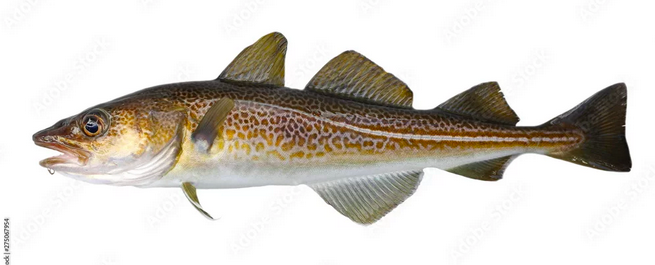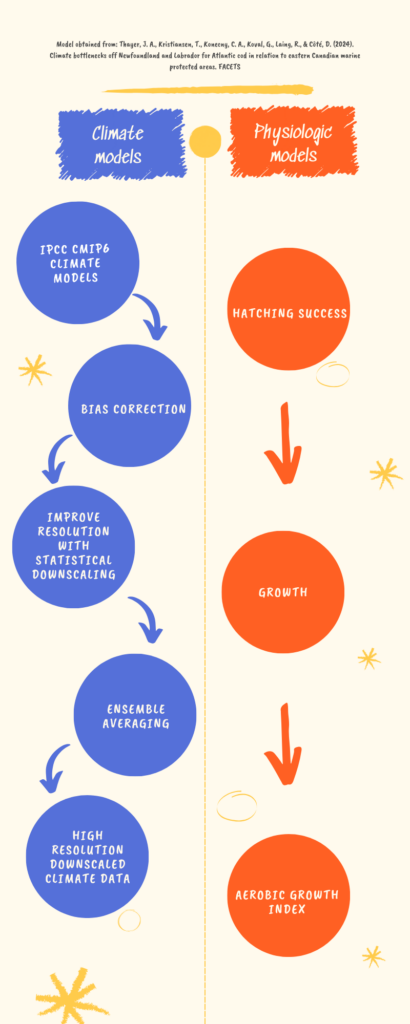Author: Miranda Jacques
Date: June 24, 2025

Article Title:
Climate bottlenecks off Newfoundland and Labrador for Atlantic cod in relation to eastern Canadian marine protected areas
Article Affiliation:
Farallon Institute, CA, USA
Fisheries and Oceans Canada, St. John’s, NL, Canada
Nunatsiavut Government, Nain, NL, Canada
Article Citation:
Thayer, J. A., Kristiansen, T., Konecny, C. A., Koval, G., Laing, R., & Côté, D. (2024). Climate bottlenecks off Newfoundland and Labrador for Atlantic cod in relation to eastern Canadian marine protected areas. FACETS.
INTRODUCTION
Climate change is significantly impacting marine ecosystems, particularly in colder regions where species, like Atlantic cod, thrive. Understanding these changes is vital as they have profound implications for fisheries, biodiversity, and global food security. This research focuses on the effects of climate change on Atlantic cod habitats, providing critical insights into how warming oceans might alter the distribution and survival of this economically important species.
The research aimed to investigate how different climate scenarios (SSP1-2.6, SSP2-4.5, SSP5-8.5) would affect the survival, growth potential, and habitat suitability for Atlantic cod across various life stages by the year 2100.
This topic is crucial because it fills a gap in knowledge about how multiple life stages of cod are affected by climate change, particularly in relation to habitat shifts due to warming oceans and declining oxygen levels. The study builds on previous work by incorporating more detailed spatial models and considering multiple factors, such as oxygen levels and temperature, to assess habitat suitability. The research methods included projecting cod habitat changes using advanced climate models and analyzing how these projections align with existing marine protected areas (MPAs).
RESULTS AND DISCUSSION
The study found that while cod egg and juvenile habitats are likely to improve or remain stable under various climate scenarios, adult spawning habitat will decline, especially in southern regions due to reduced oxygen levels. This indicates that although cod may find more suitable habitats for early life stages, spawning challenges could lead to population declines. The research highlights the strengths of a multifactorial approach in predicting habitat suitability but also acknowledges uncertainties related to environmental factors not included in the models, such as prey availability and adaptation capabilities.

This study is significant as it provides a comprehensive analysis of how Atlantic cod, a key species for the Atlantic Canadian economy, might respond to climate change. The findings suggest that while some regions may see increased cod populations, others could face declines, impacting fisheries and local economies. For Atlantic Canadians, particularly those reliant on cod fisheries, this research underscores the need for adaptive management strategies to ensure the sustainability of cod stocks in the face of ongoing climate change.
CONCLUSION
The study reveals that climate change will have complex effects on Atlantic cod habitats, with potential benefits for some life stages and regions but significant challenges for spawning adults. This research is crucial for informing conservation efforts and ensuring the long-term sustainability of cod fisheries, particularly in Atlantic Canada.
